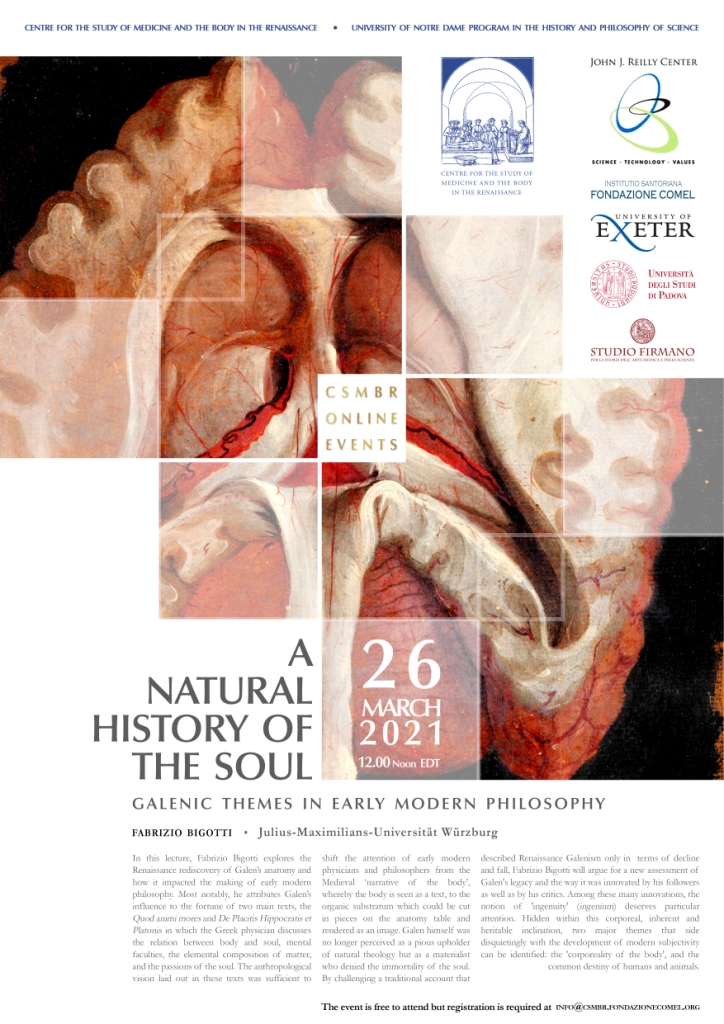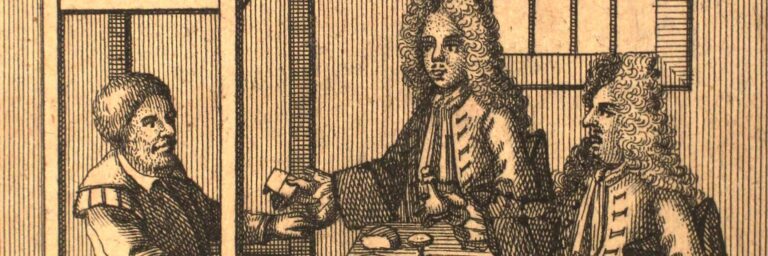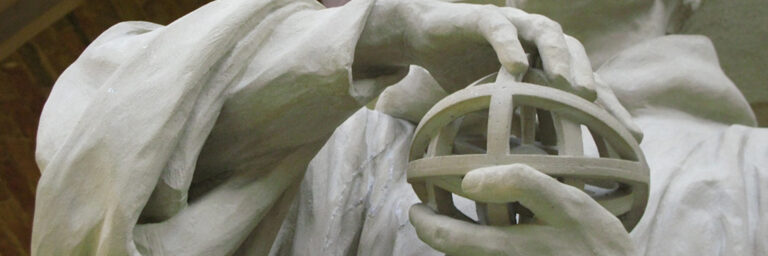A Natural History of the Soul
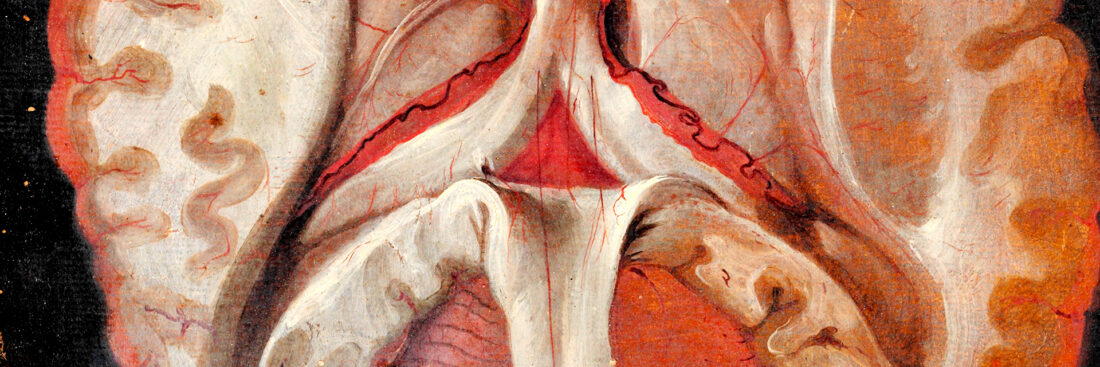
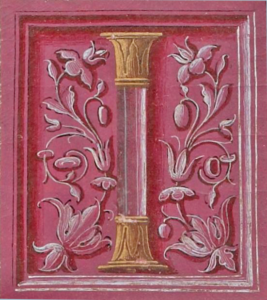
A Natural History
of the Soul
Galenic Themes
in Early Modern Philosophy
Fabrizio Bigotti
26 March 2021 – 5 PM (CET)
In this lecture, Fabrizio Bigotti explores the Renaissance rediscovery of Galenic anatomy and how it impacted the making of early modern philosophy. Most notably, he attributes Galen’s influence to the fortune of two main texts, the Quod animi mores and De placitis Hippocratis et Platonis in which the Greek physician discusses the relation between body and soul, mental faculties, the elemental composition of matter, and the passions of the soul.
The anthropological vision Galen’ laid out in these texts was sufficient to shift the attention of early modern physicians and philosophers from the Medieval ‘narrative of the body’, whereby the body is seen as a text, to an organic substratum to be cut in pieces on the anatomy table and to be eventually rendered as an image. Galen himself was no longer perceived as a pious upholder of natural theology but as a materialist who denied the immortality of the soul.
By challenging a traditional historiographical account that described Renaissance Galenism in terms of decline and fall, Fabrizio Bigotti will argue for a new assessment of Galen’s legacy, also read through the lens of those who opposed or reacted critically to it and thus contributed to the shaping of important aspects of the early modern debate on anthropology, ethics, psychology and even quantified experimentation. Among these many innovations and transformations, the notion of ‘ingenuity’ (ingenium) deserves particular attention.
Hidden within this corporeal, inherent and heritable inclination, two major themes that side disquietingly with the development of modern subjectivity can be identified: the ‘corporeality of the body’, and the common destiny of humans and animals.
About the Speaker ...
Fabrizio Bigotti is an intellectual historian with a specialisation on the history of medicine, science and technology in the late medieval and early modern period (1300-1700).
He studied at the University of Rome ‘La Sapienza’, where he achieved a PhD in History of Philosophy and History of Ideas (2012), with a thesis on the influence of Galen’s medicine and psychology on the late-Renaissance philosophy (Ottimo/Summa cum Laude). Since then, he has held Postdoctoral and Research positions at The Warburg Institute of London, the University of Exeter, the Folger Institute of Washington DC, the University of Padua, Valencia and Bucharest. He is currently Senior Research Fellow at the Institut für Geschichte der Medizin, Julius-Maximilians-Universität Würzburg, Director of the CSMBR and co-editor of the Series Palgrave Studies in Medieval and Early Modern Medicine (PSMEMM).



